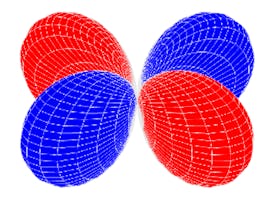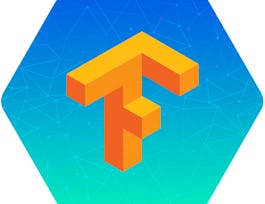This course can also be taken for academic credit as ECEA 5612, part of CU Boulder’s Master of Science in Electrical Engineering degree.


Approximation Methods
This course is part of Quantum Mechanics for Engineers Specialization
Taught in English
Some content may not be translated

Instructor: Wounjhang Park
5,514 already enrolled
Included with 
Course
Recommended experience
What you'll learn
Distinguish non-degenerate and degenerate cases and use appropriate methods.
Perform calculations using the time-independent perturbation theory.
Describe absorption and stimulated emission processes.
Obtain approximate solutions using the variational method.
Skills you'll gain
Details to know

Add to your LinkedIn profile
3 quizzes
Course
Recommended experience
See how employees at top companies are mastering in-demand skills

Build your subject-matter expertise
- Learn new concepts from industry experts
- Gain a foundational understanding of a subject or tool
- Develop job-relevant skills with hands-on projects
- Earn a shareable career certificate


Earn a career certificate
Add this credential to your LinkedIn profile, resume, or CV
Share it on social media and in your performance review

There are 3 modules in this course
In this module we will introduce the course on approximation methods commonly used in quantum mechanics and then discuss time-independent perturbation theory. We will first discuss non-degenerate perturbation theory and derive useful formulas for the first- and second-order corrections. We will then discuss degenerate perturbation theory. We will also discuss specific examples where the various perturbation methods are used - Stark effect, fine structure and Zeeman effect.
What's included
8 videos4 readings1 quiz2 discussion prompts
In this module, we will introduce interaction picture and derive time evolution equations. After discussing a simple but illuminating example of two-state system, we develop time-dependent perturbation theory and discuss the probability of transitions between quantum states induced by external perturbation.
What's included
5 videos3 readings1 quiz1 peer review
This module covers several non-perturbative approximation methods. They are the tight binding method, variational method and the use of finite basis set.
What's included
3 videos3 readings1 quiz1 discussion prompt
Instructor

Offered by
Recommended if you're interested in Electrical Engineering

University of Colorado Boulder

University of Colorado Boulder

University of Colorado Boulder
Get a head start on your degree
This course is part of the following degree programs offered by University of Colorado Boulder. If you are admitted and enroll, your coursework can count toward your degree learning and your progress can transfer with you.
Why people choose Coursera for their career





Open new doors with Coursera Plus
Unlimited access to 7,000+ world-class courses, hands-on projects, and job-ready certificate programs - all included in your subscription
Advance your career with an online degree
Earn a degree from world-class universities - 100% online
Join over 3,400 global companies that choose Coursera for Business
Upskill your employees to excel in the digital economy
Frequently asked questions
Access to lectures and assignments depends on your type of enrollment. If you take a course in audit mode, you will be able to see most course materials for free. To access graded assignments and to earn a Certificate, you will need to purchase the Certificate experience, during or after your audit. If you don't see the audit option:
The course may not offer an audit option. You can try a Free Trial instead, or apply for Financial Aid.
The course may offer 'Full Course, No Certificate' instead. This option lets you see all course materials, submit required assessments, and get a final grade. This also means that you will not be able to purchase a Certificate experience.
When you enroll in the course, you get access to all of the courses in the Specialization, and you earn a certificate when you complete the work. Your electronic Certificate will be added to your Accomplishments page - from there, you can print your Certificate or add it to your LinkedIn profile. If you only want to read and view the course content, you can audit the course for free.
If you subscribed, you get a 7-day free trial during which you can cancel at no penalty. After that, we don’t give refunds, but you can cancel your subscription at any time. See our full refund policy.


